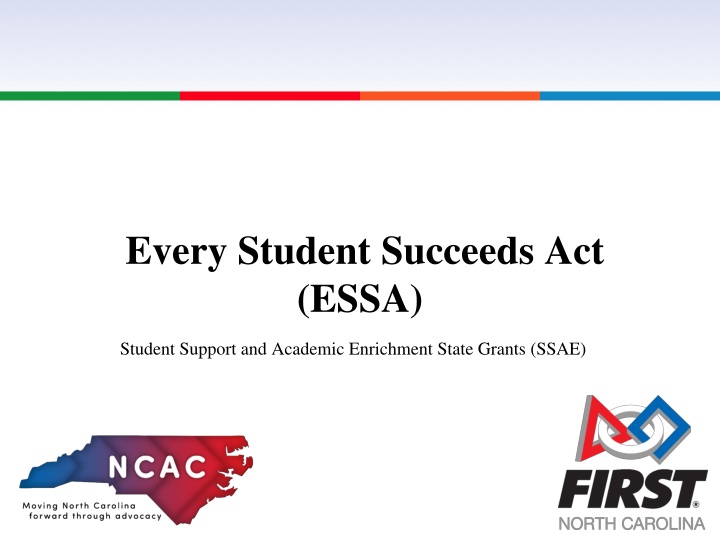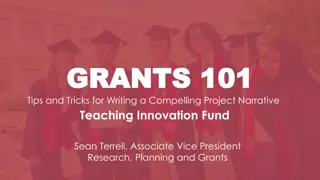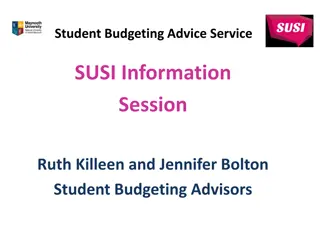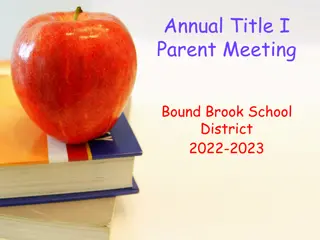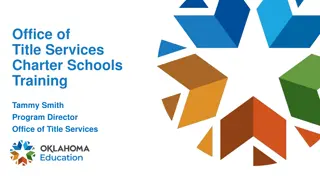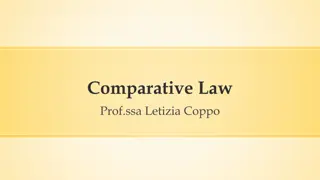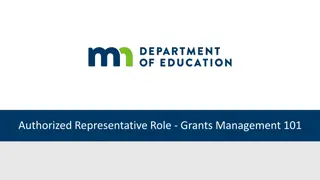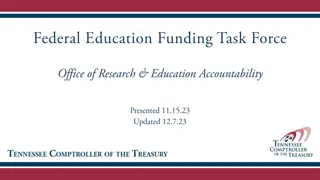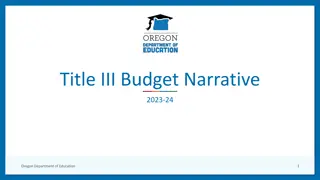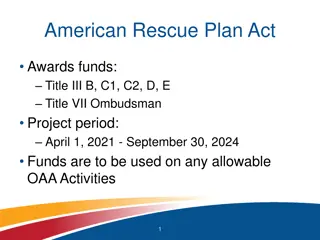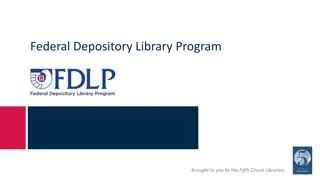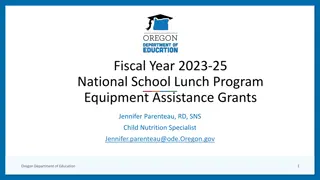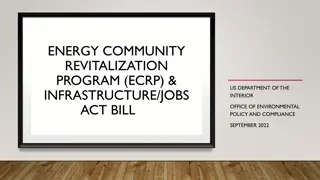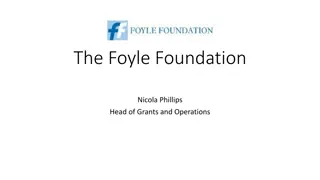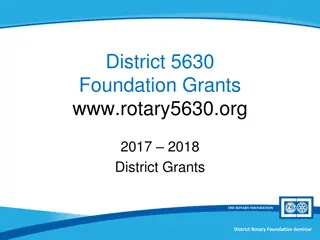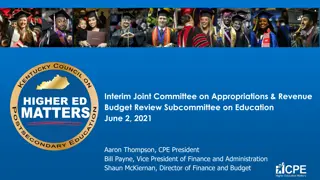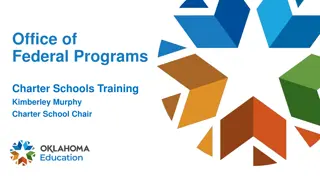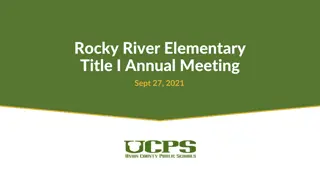Enhancing Education through Title IV-A Federal Grants
The Every Student Succeeds Act (ESSA) supports student success through the Student Support and Academic Enrichment State Grants (SSAE) program, providing funding for safe and healthy students, well-rounded education, and technology improvements in schools. Title IV-A grants are allocated based on a formula, with districts prioritizing high-need schools and collaborating to offer various programs. Funds must be allocated for safe and healthy students, well-rounded education, and other activities like technology education.
Download Presentation

Please find below an Image/Link to download the presentation.
The content on the website is provided AS IS for your information and personal use only. It may not be sold, licensed, or shared on other websites without obtaining consent from the author.If you encounter any issues during the download, it is possible that the publisher has removed the file from their server.
You are allowed to download the files provided on this website for personal or commercial use, subject to the condition that they are used lawfully. All files are the property of their respective owners.
The content on the website is provided AS IS for your information and personal use only. It may not be sold, licensed, or shared on other websites without obtaining consent from the author.
E N D
Presentation Transcript
Every Student Succeeds Act (ESSA) Student Support and Academic Enrichment State Grants (SSAE)
Every Student Succeeds Act Every Student Succeeds Act Passed with overwhelming bipartisan majorities in the House and the Senate Signed by President Obama in December 2015 Title IV, Part A- Student Support and Academic Enrichment State Grants (SSAE) $1.6 billion Authorized Provided block grants to all states to use as they want Includes spending funds to support the participation of low- income students in nonprofit competitions related to STEM subjects (such as robotics competitions) Districts given flexibility Minimum allocation of $10k per district Moving North Carolina Forward Through Advocacy
Appropriations: Student Support and Academic Enrichment State Grants FY17 Appropriated $400 million of the $1.6 billion Additional flexibility from Congress Different state approaches FY18 ( October 1, 2017 - September 30, 2018) Not passed until March 2018 Result of budget deal increases Parkland impact Appropriated $1.1 million FY19 (begins October 1, 2018) Federal team attempting to maintain funding House bill proposes $1.2 million Moving North Carolina Forward Through Advocacy
What Is Title IV-A? The new Title IV-A, Student Support and Academic Enrichment (SSAE) program: Supports every district with funding for safe and healthy students, well-rounded education, improving technology in schools Moving North Carolina Forward Through Advocacy
Title IV-A Basics Block grant by formula to states (based on Title I formula) Block grant by formula from state to every district (based on Title I formula) A district that receives more than $30,000 must conduct a needs assessment District develops application to submit to state with input from parents, teachers, community stakeholders Application must prioritize high-need schools Districts may collaborate to provide programs and activities Moving North Carolina Forward Through Advocacy
Title IV-A Basics Title IV-A funds must allocate: 20% for safe and healthy students 20% for well-rounded education 60% for other activities, including improving technology education (15% cap on hardware/software) Moving North Carolina Forward Through Advocacy
Safe and Healthy Students Mental health awareness training, school-based counseling, student safety and violence prevention, professional development for specialized instructional support personnel, nutrition education, physical education, bullying and harassment prevention, and integrated systems of student and family supports. Moving North Carolina Forward Through Advocacy
Well-rounded Education College and career guidance programs, using music and the arts to promote student engagement, STEM and computer science programs, increasing access to accelerated coursework, foreign languages, environmental education, and almost anything else that supports a well-rounded educational experience. Moving North Carolina Forward Through Advocacy
Improving Technology in Schools Educator professional development in the use of technology, building technology infrastructure, using blended learning projects, and providing students in rural communities with resources for digital learning experiences. Moving North Carolina Forward Through Advocacy
